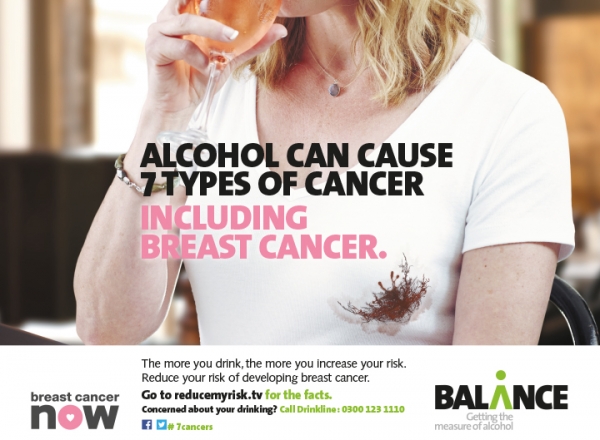Alcohol-related mouth and throat cancer admissions rise
Experts in the North East are warning about the long-term risks of alcohol as new figures reveal a sharp rise in the number of hospital admissions for alcohol-related mouth and throat cancer.
Analysis carried out by Balance, the North East Alcohol Office, shows that the number of North East hospital admissions for alcohol-related mouth and pharyngeal cancer – which includes lip, oral cavity and pharynx – have increased by 53% between 2006/07 and 2013/14. This is compared to a 16% increase for all alcohol-related cancer admissions in the North East.
Official cancer registration figures show that there were 404 people diagnosed with mouth cancers in the North East in 2013 and evidence indicates that about 30% of these cases will be linked to alcohol. The impact of mouth cancer however has a much larger impact on the NHS, as North East hospitals deal with around 1,900 separate admissions per year where mouth cancers are a factor, costing in excess of £3.6 million.
The findings – which coincide with Mouth Cancer Action Month – are part of Balance’s campaign to raise awareness of the link between alcohol and seven types of cancer – mouth, pharyngeal (upper throat), oesophageal (food pipe), laryngeal (voice box), bowel, breast and liver.
Research shows that you are three times more likely to develop cancers of the mouth and throat by drinking above the recommended limits. Department of Health guidelines recommend no more than 2-3 units a day for women and a maximum of 3-4 units a day for men, with at least two alcohol free days per week. There are two units in a standard 175ml glass of wine (ABV 13%) and three units in a pint of strong lager, beer or cider (ABV 5.2%) so you might be consuming more than you think.
Colin Shevills, Director of Balance, said: “These figures are extremely worrying. Alcohol is a poison, it’s in the same cancer causing group as tobacco smoke and asbestos – we really need to continue to drive this message home.
“It’s important that people are aware of the serious long term health risks associated with drinking alcohol, as well as the short term health implications. Alcohol is linked to more than 60 different medical conditions, including cancer, liver disease, osteoporosis, stomach ulcers, raised blood pressure, stroke and dementia.”
Julie King, Oral Health Promotion Lead, Community Dental Service, County Durham & Darlington NHS Foundation Trust, said: Mouth Cancer Action Month aims to raise awareness of mouth cancer and to make a difference by saving thousands of lives through early detection and prevention. The Community Dental Service Oral Health Promotion Team has passionately supported this campaign for several years and shares a commitment to increasing awareness of the disease and reducing the number of lives lost to it every year.
“Throughout November our team aims to share what we know about the risk factors for mouth cancer and how to reduce them. We will be highlighting signs and symptoms of oral cancer, encouraging everybody to discuss any potentially worrying signs and symptoms with a dental professional.
“Those who smoke and drink alcohol to excess, increase their risk of mouth cancer by up to 30 times. Drinking alcohol to excess is linked to approximately one third of cases of mouth cancer cases.”
Hannah Thorpe, Senior Dental Officer, Community Dental Service, County Durham & Darlington NHS Foundation Trust, added: “In the UK, more than 6,700 people were diagnosed with mouth cancer last year. The disease has grown by a third in the last decade and remains one of very few cancers predicted to increase further in the coming years; that is why Mouth Cancer Action Month remains so relevant.
“Sadly, mouth cancer takes the lives of more than 2,000 people each year in the UK; more than testicular and cervical cancer combined. More people also die every year of mouth cancer than are killed in road traffic accidents. Although certain risk factors are heavily implicated in the development of the disease, mouth cancer can affect anybody. By knowing more about the risk factors and adopting healthier lifestyles we can all take simple steps to reduce our risk of developing mouth cancer.
“Make time to speak to a dental professional this month about worrying signs or symptoms. Don’t leave that ulcer unattended for more than three weeks. Don’t ignore that unusual lump, swelling or red and white patch in your mouth. Early detection could save your life.”
You can get further information and can see how much you are drinking by using the online drinks checker at www.reducemyrisk.tv
